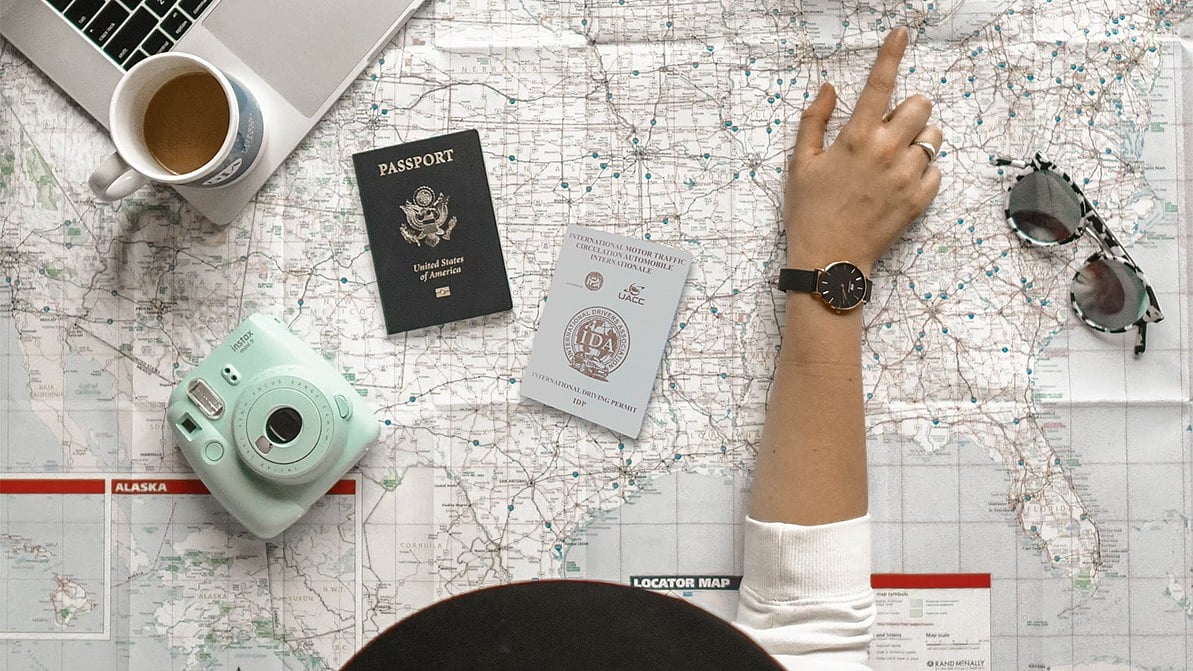Why you need an international driving permit for car rentals in Dubai
The law allows foreign residents to drive only with a valid International Driving Permit

Renting a car in the UAE remains one of the most convenient ways to get around, especially for tourists who want to explore the country independently. However, there is an important rule everyone must know: without an International Driving Permit (IDP), it is officially impossible to rent a car in Dubai, except for citizens of countries whose national driver’s licenses are approved by the Markhoos system.
All licensed car rental companies in the Emirates require two documents — a national driving license and an International Driving License (IDL). If even one of them is missing, the car will not be rented under any circumstances.
Those who manage to rent a car without an IDP through unlicensed or dishonest companies should understand the risks. In the event of a traffic accident, police inspection, or insurance claim, such driving is considered illegal. This may result in heavy fines, denial of insurance coverage, and even administrative detention.
Why tourists should obtain an IDP in advance
UAE law clearly states that foreign citizens temporarily residing in the country may drive only if they hold an International Driving Permit (IDP) issued under the International Road Traffic Convention. National licenses issued outside the UAE are not recognized as valid without an accompanying IDP.
The standard document package required for car rental includes a passport, a credit card in the driver’s name (for deposit), a national driving license, and an International Driving Permit (IDP).
If a tourist arrives in Dubai without an IDP, they can obtain one quickly through the official platform ida.ae — the service operated by the International Drivers Association (IDA) for issuing international driver’s licenses to foreign visitors.
Since 2011, IDA has been providing fast and reliable IDP issuance for tourists in Dubai. The PDF version is delivered within 10 minutes, and the physical original is dispatched from the nearest regional office and delivered to Dubai within 1–3 hours.
The service is available exclusively for tourists and temporary visitors. It is not provided to UAE residents or citizens.
Hidden pitfalls of car rentals
Although the car rental market in the UAE is well regulated, tourists should remain cautious, as some companies inflate fines by adding old or irrelevant violations to the bill. To avoid this, it is recommended to verify all penalties through the official Dubai Police App, which can be done by installing the app, entering the car’s plate number, checking the list of fines along with their dates and amounts, and paying directly through the app without intermediaries or extra fees.
When receiving a car, it is important to perform a detailed inspection, taking photos and videos of the car’s body, glass, and interior to record any existing damage, photographing the dashboard to show the mileage and fuel level, and ensuring that the first aid kit and warning triangle are present, as this careful documentation will help avoid disputes and unfair deposit deductions when returning the car.
Attention should also be paid to Salik, the toll road system in Dubai, since some rental companies include toll costs in the rental rate while others issue a separate bill after the car is returned, often with an additional service fee, so it is best to clarify these conditions in advance and request a final statement for full transparency.
Differences in rules and penalties between Emirates
Although traffic law is uniform across the UAE, its enforcement varies from emirate to emirate, as in Dubai there is a speed tolerance of up to +19 km/h, meaning that a violation is only recorded if the speed exceeds 120 km/h in a 100 km/h zone, while in Abu Dhabi the rules are much stricter, and any excess over the limit, even by 1 km/h, triggers a fine, so if the limit is 100 km/h, driving at 101 km/h already counts as a violation.
Common fines include speeding from Dh300 ($81), unpaid parking from Dh200 ($55), using a mobile phone while driving with a penalty of Dh800 ($217) and 4 demerit points, and running a red light, which results in a fine of Dh50,000 ($13,614), 12 demerit points, and possible vehicle confiscation.
In the event of a traffic accident, possession of an International Driving Permit (IDP) becomes a crucial legal factor, as the police require it to register the incident, the insurance company needs it to process claims, and the court uses it to verify the driver’s eligibility, while driving without an IDP is treated as driving without a valid license, which voids insurance coverage and may lead to administrative penalties.
Drive safe
An International Driving Permit (IDP) is not a formality — it is the foundation of legal and safe driving in the UAE.
Obtaining it in advance via ida.ae ensures full compliance with traffic laws, prevents issues with rental and insurance companies, and provides peace of mind on the roads of the Emirates.
Sign up for the Daily Briefing
Get the latest news and updates straight to your inbox
Network Links
GN StoreDownload our app
© Al Nisr Publishing LLC 2026. All rights reserved.